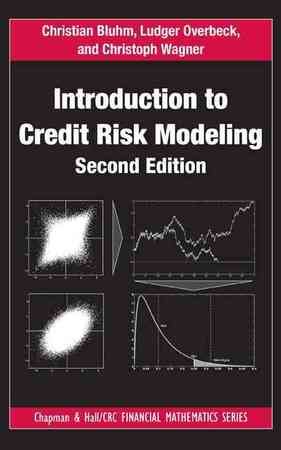Illustrating mathematical models for structured credit with practical examples, Introduction to Credit Risk Modeling provides an accessible introduction to the foundations of structured credit portfolio modeling. Updated and expanded, this second edition features additional material on estimation of asset correlations, benchmark correlations based on securitizations of benchmark portfolios in the market, risk contributions and spectral risk measures, nonhomogeneous Markov chain approaches, multi-year models, current agency models, single-tranche CDOs, index tranches, as well as new developments in synthetics. The text also includes new exercises and a supporting website.


